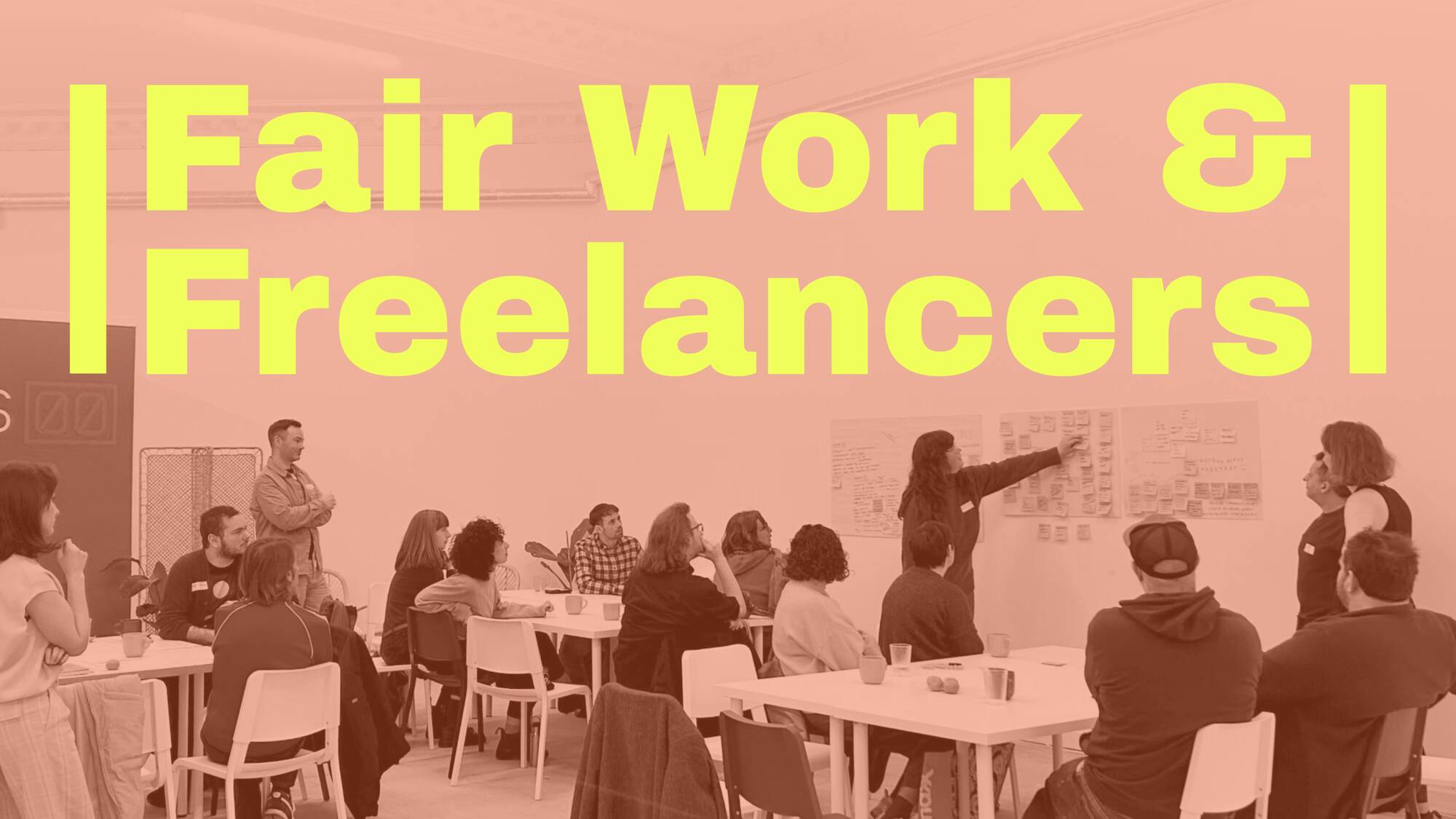
07.05.25

Alongside all applicants to Creative Scotland’s Multi-Year Funding, Creative Dundee made a commitment to centring Fair Work practices within our organisation – an intention that aligns with the Scottish Government’s target of becoming a Fair Work nation by 2025. In taking the time to outline how this commitment responded to and could guide the way our team works together, we found ourselves asking – as an organisation regularly working with and advocating for creative practitioners – ‘how does Fair Work extend to freelancers?’
Broadly speaking, there’s not a great deal of clarity about the expectations around Fair Work and freelancers – and what the responsibility is of those who work with them to ensure that their Fair Work practices cover freelancers as well as employed staff.
This blog explores Creative Dundee’s approach to Fair Work, insights from freelancers about better working practices, and how freelancers might benefit from knowledge about Fair Work for self advocacy.
As defined by the Fair Work Convention, “Fair Work is work that offers all individuals an effective voice, opportunity, security, fulfilment and respect” – these are known as the five Fair Work dimensions.
Through actions outlined in 2022, the Scottish Government’s vision is that embedding fair working practices enables success, wellbeing and prosperity for society – “underpinned by the principles of equity and equality of opportunity for all”. It aspires to encourage practices that tackle inequalities that persist (such as the gender pay gap, disability employment gap, and issues addressed by their anti-racist employment strategy) and positively support the economy, as well as the workforce who drive it.
Much of the government’s Fair Work plans rightly recommend equitable practices that centre people. However, their action plan makes no mention of freelancers. Indeed, if you look for results online linked to ‘Scottish Government Fair Work for freelancers’, much of what appears is work driven within the creative and cultural sector. Given that freelancers make up the majority of the creative workforce in Scotland, it’s positive to see that the sector is broadly reflected as being proactive. Many organisations and institutions rely on freelance practitioners and arts workers extensively for programming, production, facilitation, technical work, leading on progressive practices, design work, retail products and much more.
After the welcome news of success in receiving Creative Scotland’s Multi-Year Funding earlier this year, organisations had to complete a ‘Fair Work First compliance’ form, confirming their commitment to paying the Real Living Wage and providing channels for ‘effective voice’ for employees. Applying this conditionality to grants (such as those distributed by Creative Scotland) enables the Scottish Government to seek commitment to Fair Work without legislation.
Creative Scotland’s own objectives for Fair Work are to promote fair pay, conditions, and employment opportunities across the creative sector. Although it’s unclear at this time how they will monitor an organisation’s demonstration of this, it’s even less clear whether these objectives – and the five aforementioned Fair Work dimensions – are afforded to freelancers when there’s no explicit requirement.
When writing our Fair Work statement at the end of 2023, we framed it to respond to how the organisation supports our staff team but in tandem wanted to ensure that it outlined how we extend the Fair Work dimensions to our work with freelancers. This became the statement that now lives on our website, sharing our commitment to how we work within our team and with others.
We felt it was necessary for our statement to differentiate between the team and freelancers. This isn’t because we consider freelancers as secondary or additional; rather, doing it this way meant we could clearly respond to guidance that addresses employees specifically, acknowledging that some of the benefits and framing of how we respond to the dimensions are things only applicable to employed staff (i.e. four day work-week).
This differentiation also meant that we could explicitly underline that freelancers are intrinsically part of how we think about Fair Work, rather than it being implied (or worse, an omission). Highlighting the difference makes it obvious, particularly when there is no expectation that this information be presented at all. In being explicit, we hope that it encourages others to consider how to include freelancers in their Fair Work plans, if they haven’t already.
It also feels worth noting that our statement talks about working and connecting with freelancers. Even when we’re not commissioning people, we still have a responsibility in how we interact with them – particularly when we hold power in those relationships as a resourced organisation. The freelancers we connect with are also always incredibly generous in the insights and experiences they share with us. We want to ensure that generosity is reflected back through our actions.
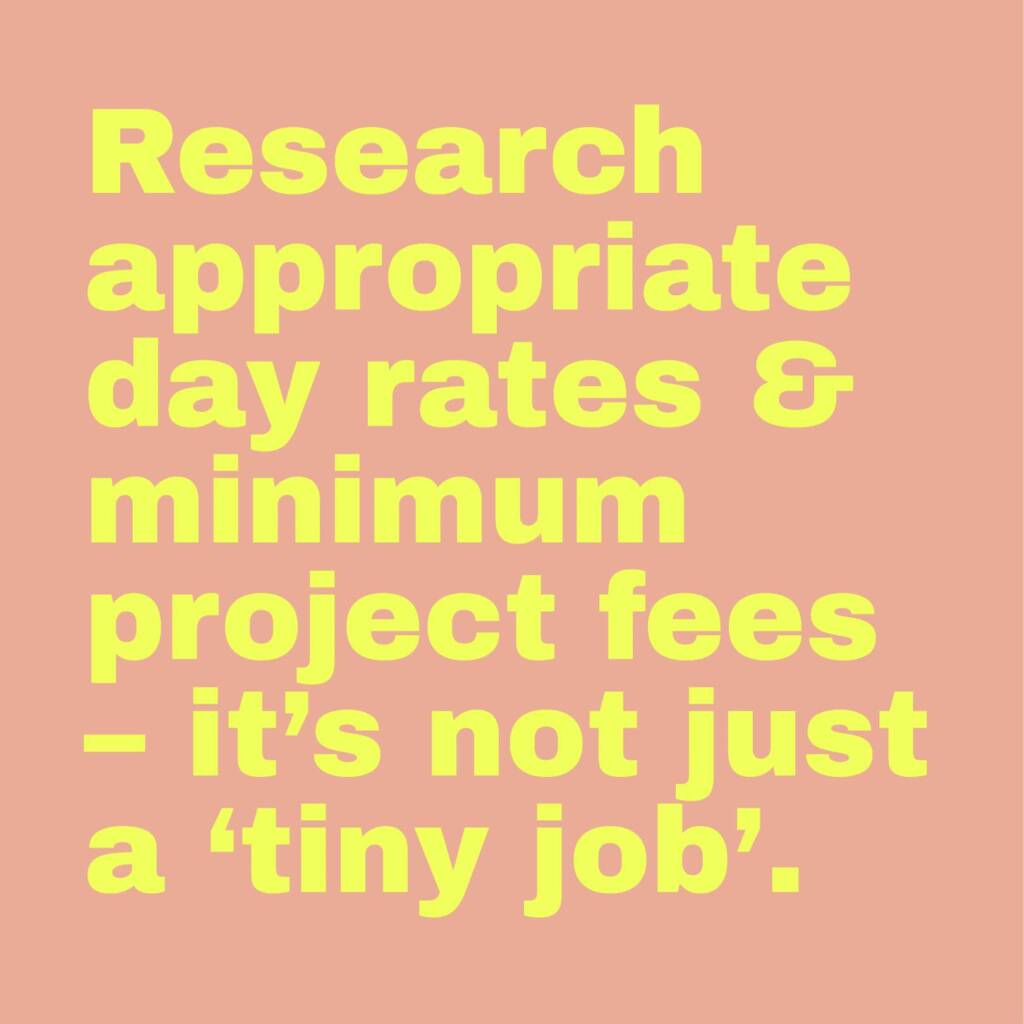
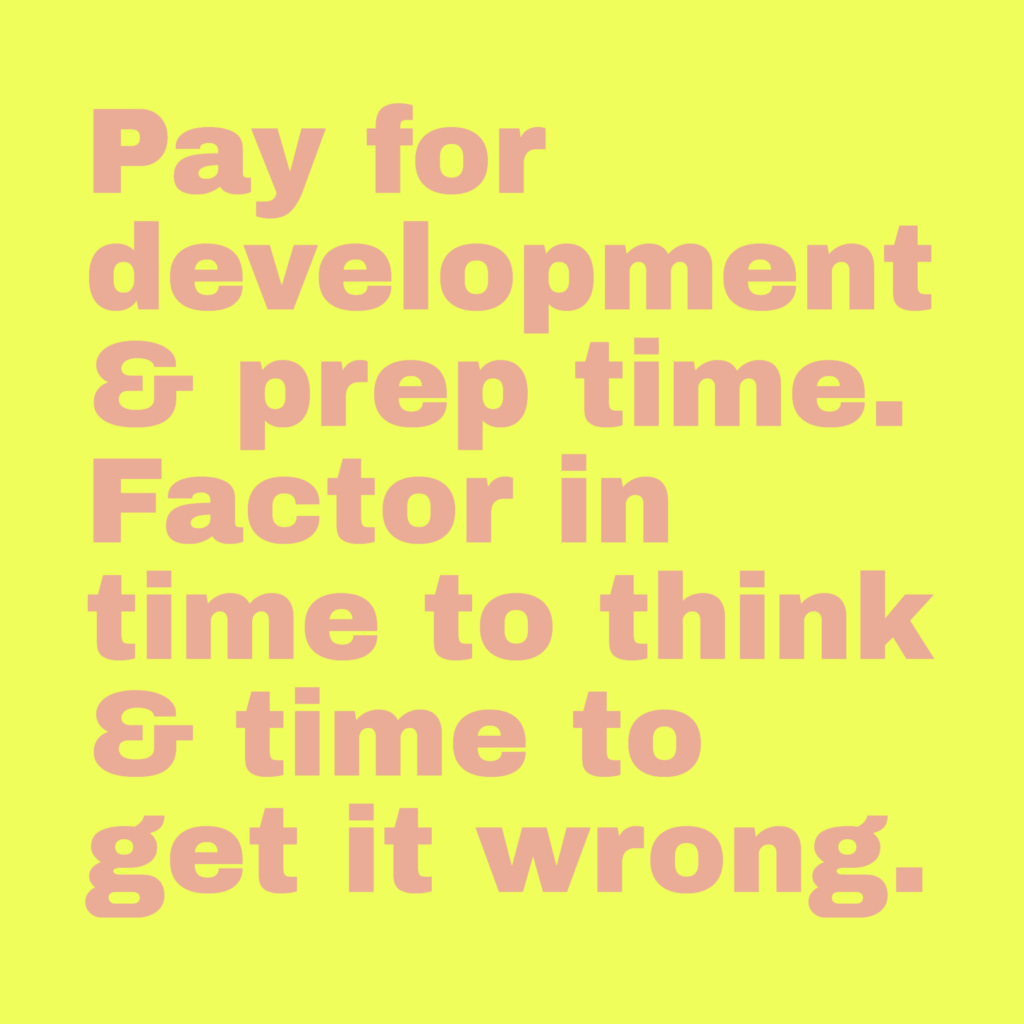
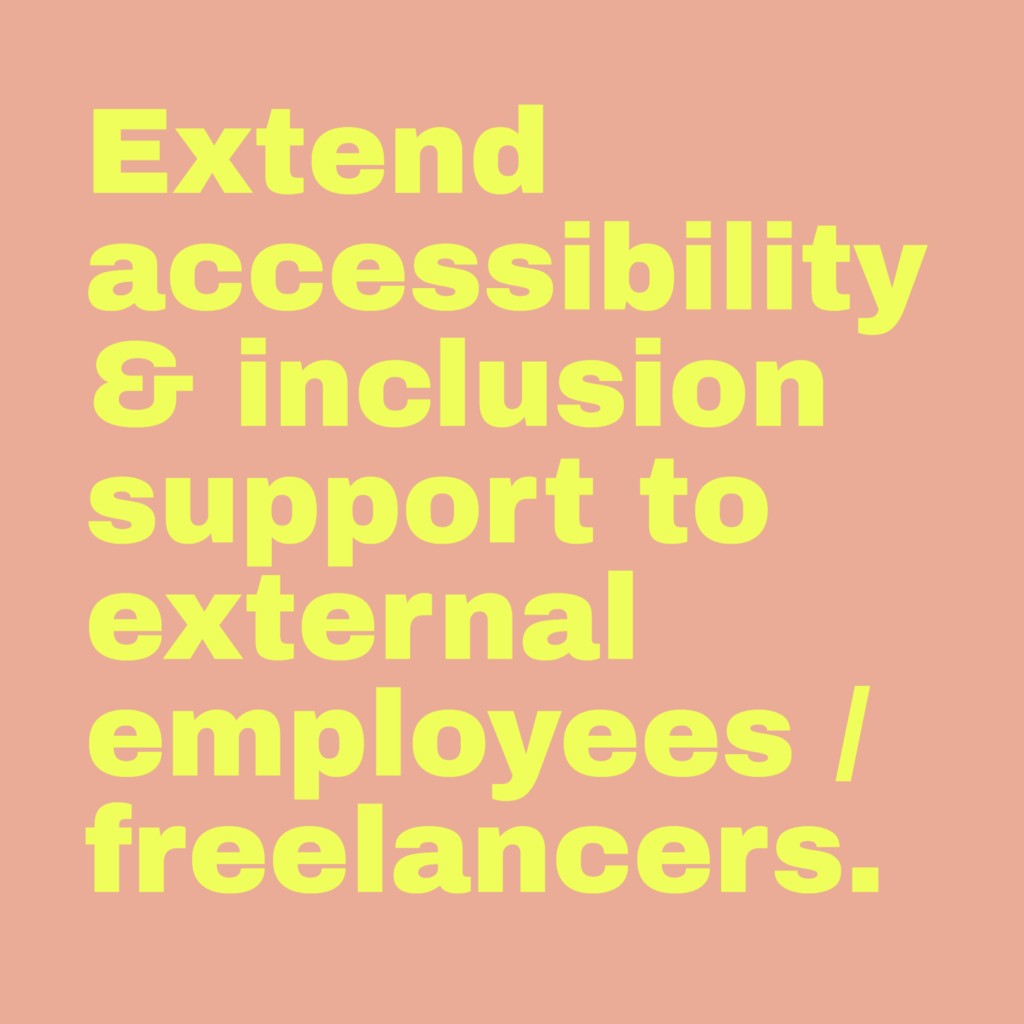
It should come as no surprise that freelancers think and talk about fairness in working all the time. In the lead up to developing our statement, two focussed discussions held with our Amps network and freelancers in the city explored the things organisations could do better when working with freelancers, building on many conversations over the years. Not only did these exchanges guide our statement, but they help Creative Dundee more broadly as an organisation too – we know there’s always the opportunity to learn and put this learning into practice.
Contributions (some of which are shared in graphics above and below) were grouped under five themes: fairness and expectations; care and consideration; communication and clarity; support and resourcing; and invoices and payment. It’s worth noting that ‘fairness and expectations’ garnered the most responses – things like “clients don’t have enough awareness of the process or time involved”, “more collaboration and less instruction, especially if they’re not paying enough”, and “stop trying to get free work or extras for free” – but all responses fit under the umbrella of the Fair Work dimensions.
Their insights highlight that there are still knowledge gaps in how to fairly hire and support freelancers in the sector. Some of this will be rooted in inexperience and lack of familiarity of freelancing, alongside barriers for those who know or want to do better, such as lack of financial resource, timelines dictated by funders or partners, and working with partners who have different expectations or understandings of working with freelancers.
At Dundee’s Culture Summit in November 2024, a paid working group of freelancers shaped one of the event’s themes to foster discussion around artists and practitioners within the city’s creative ecology. Their presentation outlined the precarity and variety of freelance life, and the many skills that one person is required to learn and juggle when self-employed. Enthusiasm was shared for the development of a freelance charter or similar resource, one that would encourage fairness and transparency when working with freelancers in the city – but how can freelancers be supported in taking the lead in this work, and what can organisations do to enable the conditions for this to happen?
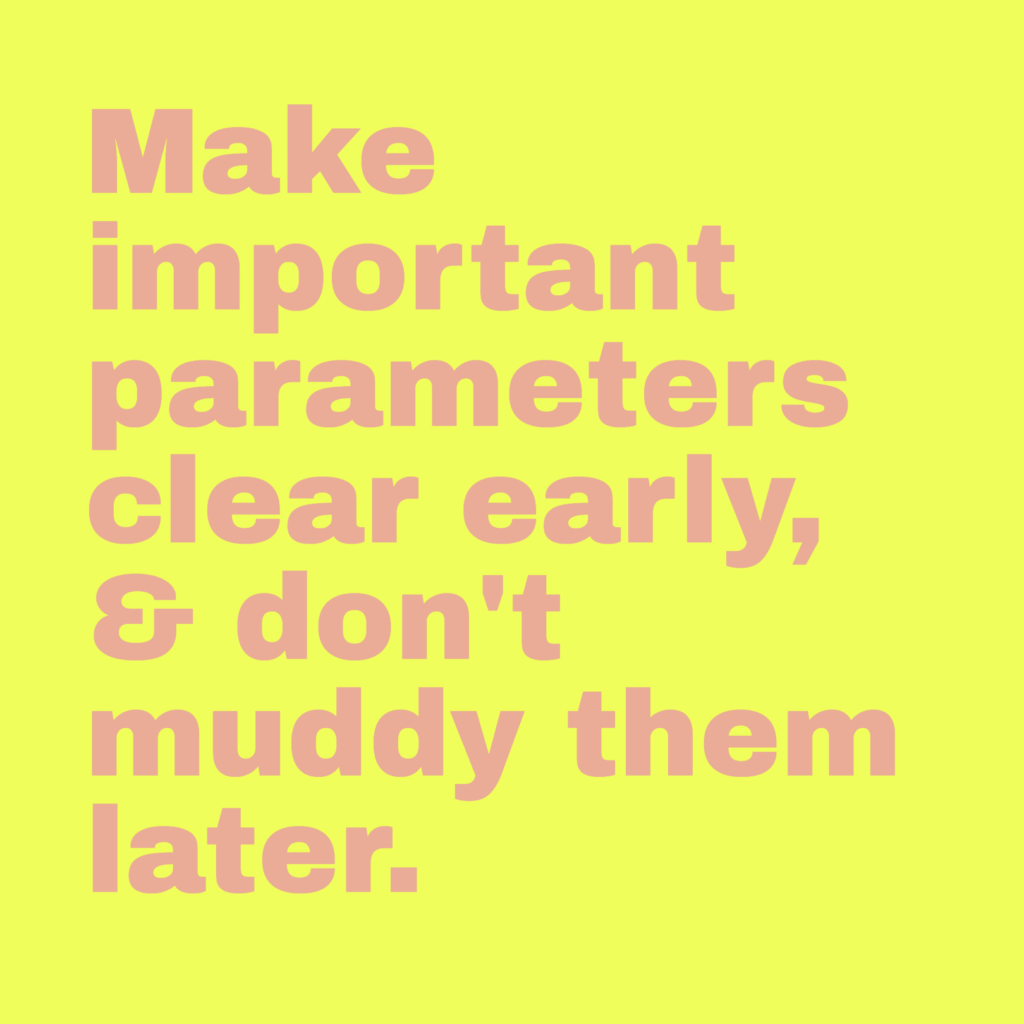
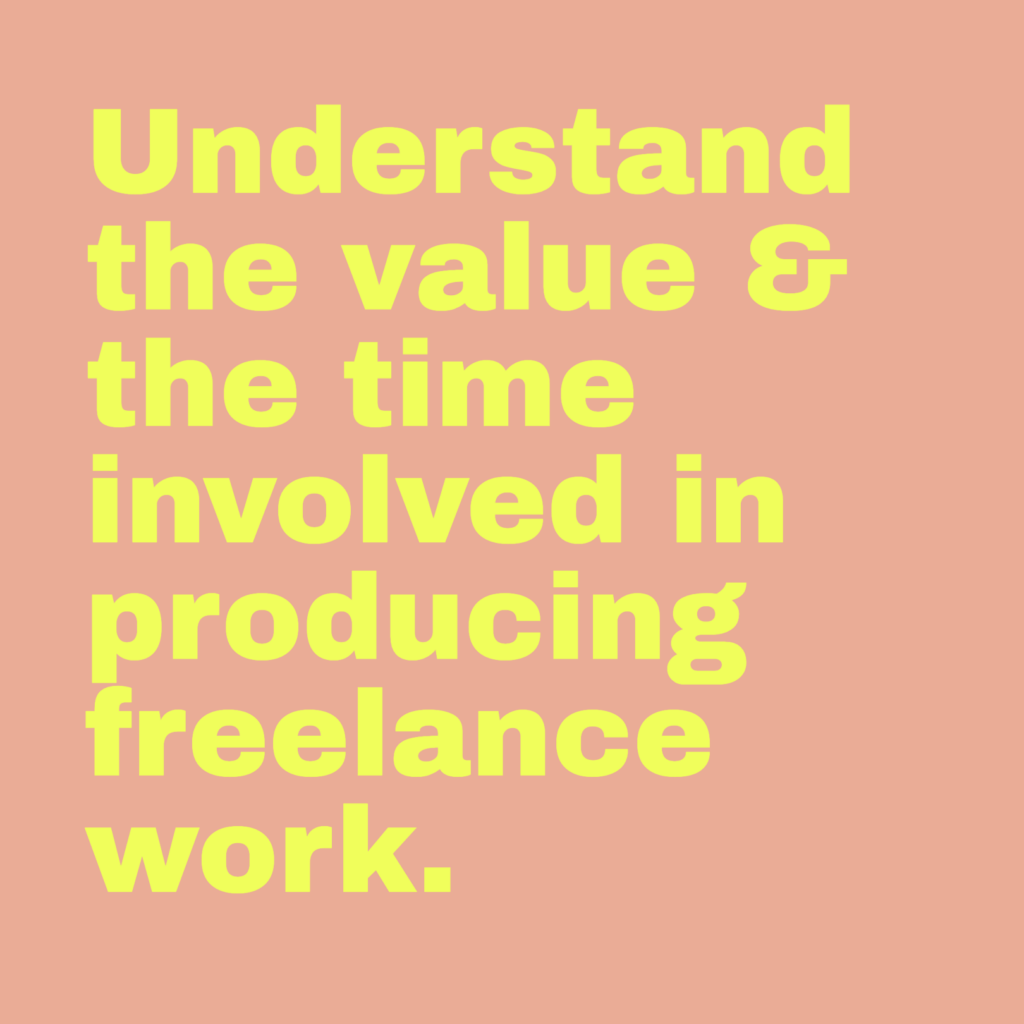
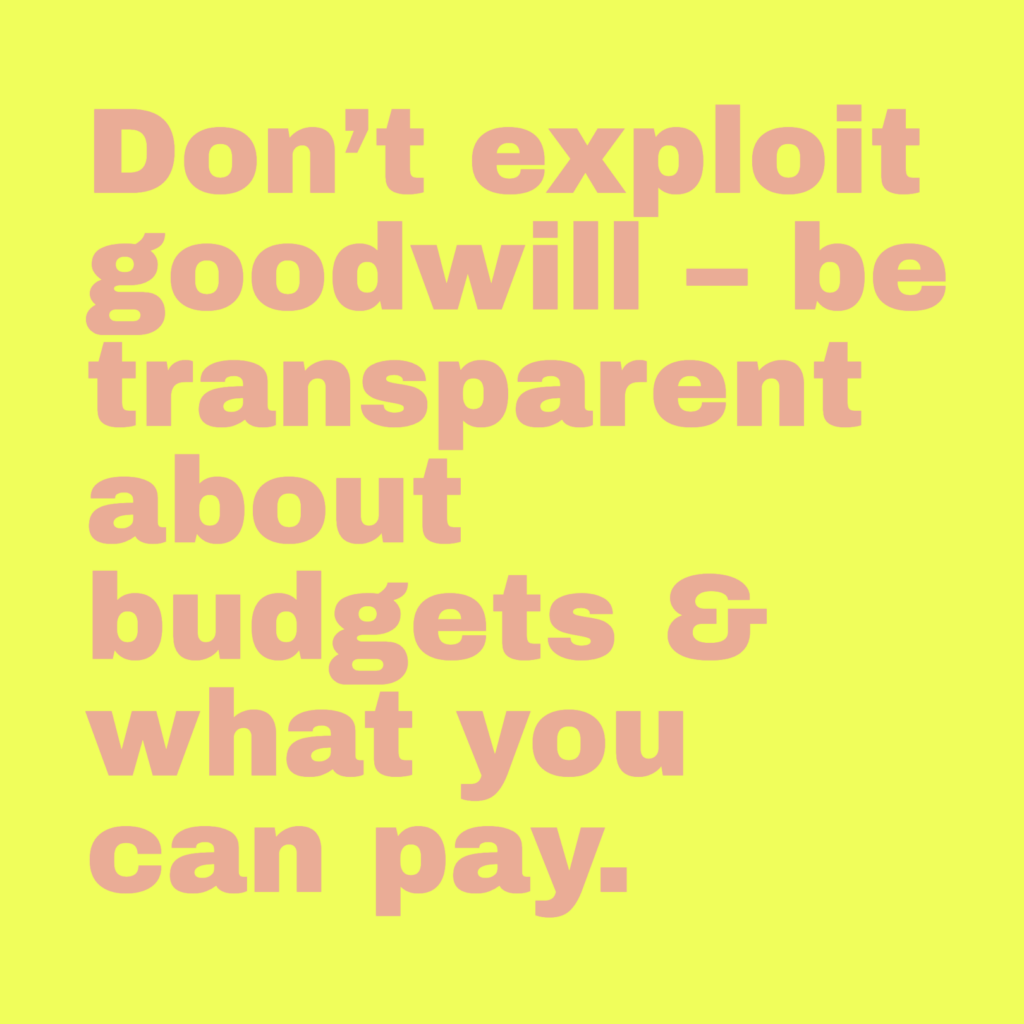
Self advocacy can feel particularly difficult in a small city like Dundee – the risk of burning bridges or limiting yourself in what is already a relatively small pool of available work sits alongside the fact that skilled creative work is routinely undervalued. Asking for what’s fair can stir up feelings of asking too much or concerns that you’re being (or being perceived as) unreasonable. Repeated and common issues are a drain on a freelancer’s time and energy, and some – particularly emerging practitioners – may simply be unaware whether asks of them are appropriate or reasonable.
While freelancers spend a lot of time considering fair working, they may not use the framework of Fair Work in doing so – or know that organisations within the creative and cultural sector may have made a commitment to embed Fair Work practices. Using the five dimensions, we’ve collated some points to consider – though this list will not be exhaustive nor applicable to all work undertaken.
For individuals, the opportunity to have an effective voice is crucially important. Having a say at work is consistent with the broader suite of rights available to citizens in democratic societies.
It is a reasonable aspiration to want work that is fair – and for fair work to be available to everyone. Fair opportunity allows people to access work and employment and is a crucial dimension of fair work.
Fulfilment can arise from positive and supportive workplace relationships that promote a sense of belonging and this overlaps strongly with respect as a dimension of fair work.
Respect at work enhances individual health, safety and wellbeing. Dignified treatment can protect workers from workplace-related illness and injury and create an environment free from bullying and harassment.
Security of income can contribute to greater individual and family stability and promote more effective financial planning, including investment in pensions.
Alongside the above, we’ve collected some Fair Work related guidance for creative freelancers in Scotland. We don’t believe the onus should be on freelancers to ensure that they’re being treated fairly, but we know that space and resources to aid understanding and growth in confidence is the first step in being able to advocate on behalf of not just yourself, but the wider community – because better working practices that are adopted due to your advocacy support the freelancer who comes after you, just as the acceptance of bad practice unfortunately lowers the bar for future work.
The creative and cultural sector has the power to do good work and set high standards for fair working for freelancers, who are the core of our creative ecosystem. It’s essential that organisations extend their Fair Work practices to the freelancers they work with, and understand their responsibility to form fulfilling, respectful, safe and sincere opportunities that recognise the knowledge, experience, care and creativity that freelancers bring to all that they do.

If you would like to support us in creating even better content, please consider joining or supporting our Amps Community.